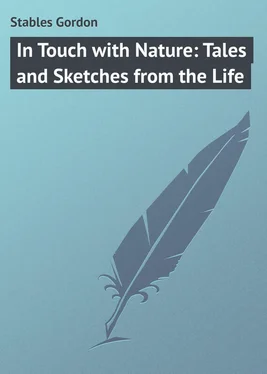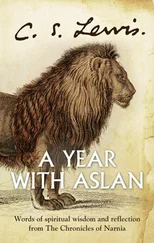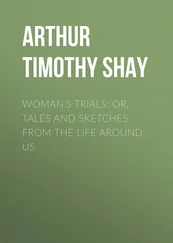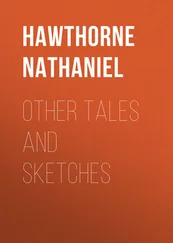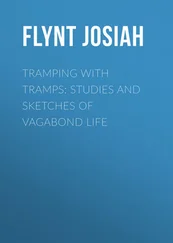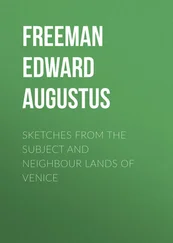Gordon Stables - In Touch with Nature - Tales and Sketches from the Life
Здесь есть возможность читать онлайн «Gordon Stables - In Touch with Nature - Tales and Sketches from the Life» — ознакомительный отрывок электронной книги совершенно бесплатно, а после прочтения отрывка купить полную версию. В некоторых случаях можно слушать аудио, скачать через торрент в формате fb2 и присутствует краткое содержание. Жанр: foreign_prose, на английском языке. Описание произведения, (предисловие) а так же отзывы посетителей доступны на портале библиотеки ЛибКат.
- Название:In Touch with Nature: Tales and Sketches from the Life
- Автор:
- Жанр:
- Год:неизвестен
- ISBN:нет данных
- Рейтинг книги:4 / 5. Голосов: 1
-
Избранное:Добавить в избранное
- Отзывы:
-
Ваша оценка:
- 80
- 1
- 2
- 3
- 4
- 5
In Touch with Nature: Tales and Sketches from the Life: краткое содержание, описание и аннотация
Предлагаем к чтению аннотацию, описание, краткое содержание или предисловие (зависит от того, что написал сам автор книги «In Touch with Nature: Tales and Sketches from the Life»). Если вы не нашли необходимую информацию о книге — напишите в комментариях, мы постараемся отыскать её.
In Touch with Nature: Tales and Sketches from the Life — читать онлайн ознакомительный отрывок
Ниже представлен текст книги, разбитый по страницам. Система сохранения места последней прочитанной страницы, позволяет с удобством читать онлайн бесплатно книгу «In Touch with Nature: Tales and Sketches from the Life», без необходимости каждый раз заново искать на чём Вы остановились. Поставьте закладку, и сможете в любой момент перейти на страницу, на которой закончили чтение.
Интервал:
Закладка:
If you went close to these trailing brambles, you would find that each cluster of bloom had a bee or two at work on it. There are plenty of the bees of commerce there, dressed in homespun garb of unassuming grey or brown, quite suitable for the work they have to do – make honey for the humble cottagers that dwell in the village nestling among the trees down yonder. But besides these, there are great gaudy bees that go droning from blossom to blossom, clad in velvet, with stripes of orange, white, or red, each arrayed in his own tartan, one might say, each belonging to his own clan or ilk. Here is a great towering thistle – emblem of Scotland, pride of her sons. How beautiful the broad mauve-coloured, thorn-protected flowers are, and on each of them is one of the aforesaid big tartan bees, and on some there are two revelling in the nectar there distilled! Now do those Scottish thistles exude a kind of whisky, I wonder, or rather a kind of Athole brose (a mixture of honey and whisky). Whether they do or not, one thing must be patent to the eyes of all observers – those tartan bees do positively become intoxicated on those Scottish thistle-tops; from other flowers they gather honey in quite a business sort of a way, but once they alight upon the thistle they are down for the day. They soon become so drowsy that they don’t care to move, and if you go near them they hold up their forelegs and shako them at you in a deprecating sort of a way.
“For goodness’ sake,” they seem to say, “don’t come here to disturb us; go away and look after your business, if you happen to have any, only don’t come here.”
If you are an early bird, you may find some of those bees asleep on the thistle-tops at six o’clock in the morning, the down on their backs all bedraggled, and dew on their wings, evidence enough that they have not been home at all, and mean to make another day of it.
Shrub-like oaks, stunted willows, and dark-berried elders also grow on the banks among the furze and the bramble, and here and there a patch of purple heath.
Between the little hills the ground is level, but carpeted over with grass and moss, and a profusion of dwarfed wild flowers of every tint and colour under the sun.
The wood itself is of fir and larch pine, with here and there a gigantic and widely spreading oak. There are dark spruce thickets too, much frequented by wood-pigeons – I can hear their mournful croodling now – and there are darker thickets still, where the brown owl sits blinking and nodding all day long, till gloaming and starlight send him out, with the bat, to see after supper.
It is under the shadow of a splendid oak-tree, which overhangs a portion of my glade, that I mostly write, and under it my little tent is pitched, the shelter of which I only court when a shower comes on, being, like every other wild creature, a thorough believer in the benefits of a life spent in the fresh open air.
Yonder hangs a hammock in which, when tired, I may lounge with a book, or, soothed by the sweet breath of the pine-trees, and lulled by the whisper of wind and leaf, sleep.
But when work is done, hammock, tent and all are packed upon or behind my tricycle, which, like a patient steed, stands there waiting to bear me to my home in the valley.
My woodland study is fully five-hundred feet above the level of the sea, and yet it is easy to see from the size, shape and surface of the pebbles all around me, that this glade was once upon a time a portion of the ocean’s bed; that glass-green waves once rippled over those banks where the furze now grows; that congers and flat fish once wriggled over the gravel where those thistles are blooming; and that thorny-backed crabs used to lie perdu in the holes where dormice now sleep in winter.
I pick up one of those pebbles and throw it – well, just in yonder among the whins; where the stone has alighted a wild old fox has a den, and she has cubs too in spring-time; so I am not the only wild creature that frequents these solitudes. Oh no; for apart from the birds, who all know me, and do pretty much as they please, there are mice and moles in the grass, and high aloft orange-brown squirrels that leap from tree to tree, besides rabbits in dozens that scurry around the hillocks and play at hide-and-seek. At this very moment up on yonder bank sits a hare; his ears are very much pricked, and he is looking towards me, but as he is chewing something, in a reflective kind of way, he cannot be very much alarmed. And only last evening I saw a large hedgehog trotting across my glade, dragging behind him a long green snake, a proof, methinks, that innocent hoggie is fond of something more solid than black beetles and juicy slugs as a change of diet.
With the exception of an occasional keeper, wandering in pursuit of game, no human being ever disturbs the sanctity of my woodland study; and no sound falls on my ears, except the distant roar of a passing train, the song of linnets, and croodle of turtle-dove and cushat.
Sometimes, in blackberry season, far down in yonder copse, I can hear the laughing voices of children at work among the brambles. Just under a furze-bush, not five yards from the spot where I am now reclining, a pheasant some time ago brought forth a brood of young. She never used to move when I went close to her, only looked up in my face, as much as to say, “I don’t think you are likely to disturb me, but I mean to stick to my nest whatever happens.”
There is something new to be seen and studied in this woodland haunt of mine all the year through. What a wondrous volume is this book of Nature! I honestly declare that if I thought I had any chance of living for, say a couple of thousands of years, I would go in for the study of natural history in downright earnest, and at the end of even that time, I daresay, I should feel just as ignorant as I do now.
But I don’t come to my woodland study to laze, be assured; a good deal of honest work is done in this sylvan retreat, as many a London editor can testify. Only, there are half-hours on some days when a drowsy, dreamy sensation steals over me, and I pitch my pen away and lie on the moss and chew the white ends of rushes, and think.
It is, say, a beautiful day in mid-July. There are wondrous clouds up yonder, piled mass on mass, with rifts of bright blue between, through which the sun shines whenever he gets a chance. There is a strip of sunshine, even now, glittering on those feathery seedling grasses, and varnishing them as it were. It is gone, and a deal of beauty goes with it.
It is close and sultry and silent, and with half-shut eyes I take to studying the liliputians that alight with fairy feet on my manuscript, or creep and crawl across it.
Here is a gnat – the Culm communis – a vast deal too communis in these wilds, especially at eventide, but my hands have long ago been rendered proof against their bites à la Pasteur . This is a new-born culex ; he hardly knows what the world is all about yet. But how fragile his limbs, how delicate his wings! These last are apt to get out of order, a breath of wind may do damage, a raindrop were fatal. This gnat has lost a leg, but that does not seem to interfere in the least degree with his enjoyment of life. He is a philosopher, five legs are fun enough; so away he flies.
Here are some small spiders – crimson ones. There are other tiny ones, too tiny yet to build a web, so they stalk for wee unwary flies.
Here comes a great mother spider, quite a Jumbo among the others; she walks quickly across the sheet, but, strange to say, half a dozen pin-head young ones are clinging to her, and now and then she drops one, and it quite unconcernedly goes to work to make its own living. Fancy human parents getting rid of their offspring in this way! No such luck, many will add.
Читать дальшеИнтервал:
Закладка:
Похожие книги на «In Touch with Nature: Tales and Sketches from the Life»
Представляем Вашему вниманию похожие книги на «In Touch with Nature: Tales and Sketches from the Life» списком для выбора. Мы отобрали схожую по названию и смыслу литературу в надежде предоставить читателям больше вариантов отыскать новые, интересные, ещё непрочитанные произведения.
Обсуждение, отзывы о книге «In Touch with Nature: Tales and Sketches from the Life» и просто собственные мнения читателей. Оставьте ваши комментарии, напишите, что Вы думаете о произведении, его смысле или главных героях. Укажите что конкретно понравилось, а что нет, и почему Вы так считаете.
